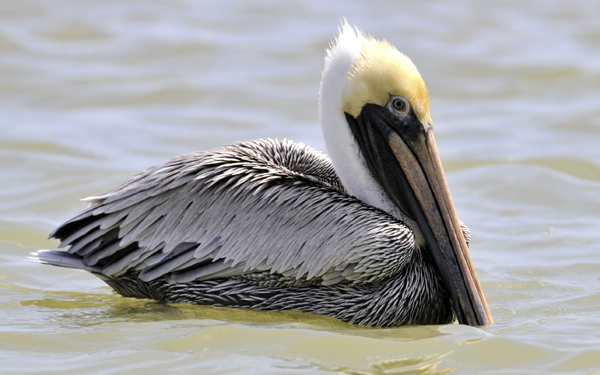Welcome to the Deepwater Horizon MC252 Incident

Editor’s Note: This is a guest post by Dr. Greg Massey, DVM, DABVP, a postdoctoral research associate at NC State who is currently using his expertise to help wildlife – particularly birds – who have been affected by the oil spill on the Gulf Coast. He will be writing about his experiences periodically on The Abstract.
Since this is my first blog entry for The Abstract, I thought I’d sketch out what I’ve been involved with since I arrived in Mississippi on May 7. Allow me to take a short detour for the purpose of providing some context. I joined NC State’s Department of Clinical Sciences at the College of Veterinary Medicine in February after spending 6 years with the Oiled Wildlife Care Network at UC Davis. When the size of this spill became evident, I was granted a leave of absence so I could join the response.
Since coming to Gulfport I’ve been working to set up the Mississippi Wildlife Response Center. This rehabilitation center is responsible for caring for oiled birds, terrestrial mammals and reptiles – but our focus is aquatic birds. Marine mammals and sea turtles are being rehabilitated at the Institute for Marine Mammal Studies just down the road. In my spare time I’ve also been providing/managing the veterinary care for the oiled bird rehabilitation facilities in Alabama and Florida (I’m learning the fast food places off I10 by heart).
My day typically starts before 7:00 AM (or as we say 0700). I spend a lot of time on the cell phone. This is usually via a headset so my hands are free to take blood samples, examine birds, clean cages, or type on the computer. I’m not a great multi-tasker, but spill responses force me to push my limits. Responses also force me to look ahead and anticipate developments before they occur. Having multiple plans in mind that can be put into place when circumstances change is critical. I’m often writing resource request forms (213RRs for those of you familiar with the Incident Command System) for items that may not be needed for a week or more. But I have to anticipate the need so the supplies and equipment are available when and if that need arises.
My day at the facility usually ends around 1900 – unless the field teams bring in oiled birds. The other night I had just settled into bed at 2320 (I’m trying to keep you guys on your toes) and my cell phone rang. One of the Mississippi biologists was on the phone saying she had just picked up an oiled brown pelican. It’s funny, but I think I was more upset that I was going to have to take another shower than anything else. I’m used to missing sleep during spills, but when you finally get the smell of fish and seabird excrement off you (for those who haven’t enjoyed the experience, it’s really an odorific tour de force) you don’t want to immediately dive back in. Anyway, I rolled out of bed, got dressed and drove to the facility. Luckily the bird was pretty stable, so I was back in bed by 0100. The bird has now been cleaned and is living in an outdoor aviary while it continues to recover.
It has been suggested that I keep these entries short, so I think I’m going to stop there (yes, 5 paragraphs IS short for me). Besides, the second half of the NBA finals game 7 is about to start, and I need to finish my daily report and answer some emails. Like I said, spills force me to multi-task – and I said my day at the facility ends at 1900. I said nothing about my workday being over at 1900. I’ll be writing these entries as often as possible, and I hope you enjoy these small glimpses of what it’s like being part of this historic response.
- Categories:


